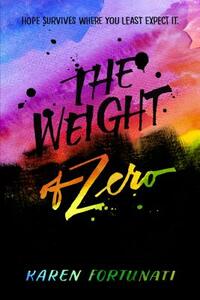Take a photo of a barcode or cover
I have not binged a book in a really long time. I felt really connected to Catherine's character. definitely going on my list of comfort books
I don’t know how to rate this because it was so triggering but maybe that’s a testament to how well-written the mental illness was. I will say the romance came out of nowhere and Nonny is a wonderful character.
Thumbs Up: I found the narrator's inner voice to be realistic and relatable. I also found her relationships to be relatively realistic and relatable.
Thumbs Down: I found too many other things unrealistic. She literally never took her meds and somehow was managing relatively fine? She has bipolar disorder and yet we never see any actual glimpses of it? Her mom finds her "troops" and doesn't freak TF out and run to look for her?
Thumbs Down: I found too many other things unrealistic. She literally never took her meds and somehow was managing relatively fine? She has bipolar disorder and yet we never see any actual glimpses of it? Her mom finds her "troops" and doesn't freak TF out and run to look for her?
This book has, more than any other piece of literature or just words in general, captured the essence of my experience with depression. I cried so long and hard with this book because it resonated so deeply within me things that I thought I had long ago buried or came to terms with. Sometimes the book felt a little cheesy and the main character can be a little irritating from time to time, but overall the characters are all very well-rounded and intriguing. The main character's struggle with her mental illness and the inescapable feeling that she's a burden on the people she loves and the unshakable apathy towards life is just so real. This book really struck me and stuck with me for many reasons, pretty much all of them personal, but if you're someone who either struggles with mental illness or wants to understand depression or bipolar disorder better, then I'd say give it a read.
emotional
hopeful
reflective
sad
medium-paced
Plot or Character Driven:
Character
Strong character development:
Yes
Loveable characters:
N/A
Diverse cast of characters:
N/A
Flaws of characters a main focus:
Yes
Fortunati, Karen. The Weight of Zero. Delacorte Press, 2016.
Cat is planning to die. She has bipolar disorder, and she knows that her current level of stability will eventually disappear to be replaced with overwhelming depression. The last time that happened it nearly killed her mother. Cat is planning to kill herself before that can happen. She doesn't want to live through the depression and doesn't want to be a burden on her mother. But as Cat continues with her therapy, with school, with life, she realizes that maybe, just maybe she actually wants to live.
I imagined a very different ending for this book than what I found. What I found was not a devastating, "the character I have grown to love dies" kind of ending, nor was it a Disney-esque "happily ever after" ending, either. But it was a satisfying ending. I appreciated this author's use of research to portray teens with various disorders and issues in a balanced light. I was glad for the realistic portrayal of Cat's family struggling to make ends meet as they pay for her various therapies, which would ring more true to my patrons than a teen who has an endless supply of funds for whatever types of therapy are needed. I'm especially glad for the not "happily ever after" ending: Cat doesn't find a magical cure for bipolar disorder. Her former friends don't see the light and give tear-filled apologies and become besties again. What Cat gets is a real life, complete with its ups and downs.
Recommended for: teens
Red Flags: discussion of suicide, Cat plans to lose her virginity (she doesn't), teen alcohol use at a party, language, members of Cat's therapy group struggle with eating disorders, OCD, and other issues which could be triggering
Overall Rating: 4/5 stars
Read-Alikes: [b:Butter|9634267|Butter|Erin Jade Lange|https://d.gr-assets.com/books/1330188575s/9634267.jpg|14521608], [b:All the Bright Places|18460392|All the Bright Places|Jennifer Niven|https://d.gr-assets.com/books/1404331702s/18460392.jpg|26113532], [b:Everything, Everything|18692431|Everything, Everything|Nicola Yoon|https://d.gr-assets.com/books/1450515891s/18692431.jpg|26540216]
I received a complimentary copy of this book through Netgalley for the purposes of review.
Cat is planning to die. She has bipolar disorder, and she knows that her current level of stability will eventually disappear to be replaced with overwhelming depression. The last time that happened it nearly killed her mother. Cat is planning to kill herself before that can happen. She doesn't want to live through the depression and doesn't want to be a burden on her mother. But as Cat continues with her therapy, with school, with life, she realizes that maybe, just maybe she actually wants to live.
I imagined a very different ending for this book than what I found. What I found was not a devastating, "the character I have grown to love dies" kind of ending, nor was it a Disney-esque "happily ever after" ending, either. But it was a satisfying ending. I appreciated this author's use of research to portray teens with various disorders and issues in a balanced light. I was glad for the realistic portrayal of Cat's family struggling to make ends meet as they pay for her various therapies, which would ring more true to my patrons than a teen who has an endless supply of funds for whatever types of therapy are needed. I'm especially glad for the not "happily ever after" ending: Cat doesn't find a magical cure for bipolar disorder. Her former friends don't see the light and give tear-filled apologies and become besties again. What Cat gets is a real life, complete with its ups and downs.
Recommended for: teens
Red Flags: discussion of suicide, Cat plans to lose her virginity (she doesn't), teen alcohol use at a party, language, members of Cat's therapy group struggle with eating disorders, OCD, and other issues which could be triggering
Overall Rating: 4/5 stars
Read-Alikes: [b:Butter|9634267|Butter|Erin Jade Lange|https://d.gr-assets.com/books/1330188575s/9634267.jpg|14521608], [b:All the Bright Places|18460392|All the Bright Places|Jennifer Niven|https://d.gr-assets.com/books/1404331702s/18460392.jpg|26113532], [b:Everything, Everything|18692431|Everything, Everything|Nicola Yoon|https://d.gr-assets.com/books/1450515891s/18692431.jpg|26540216]
I received a complimentary copy of this book through Netgalley for the purposes of review.
I was highly engaged by this, to the point that I stayed up until 1 to finish it. I'll be honest that most YA these days I skim, and maybe 1 out of every 8 I actually read cover to cover - this made it into the elite eighth of those that I wanted to follow through on.
4.5/5. Really great realistic fiction debut novel about a teen who is dealing with loss, a new bipolar disorder, lost friends and new ones.
dark
emotional
hopeful
medium-paced
Plot or Character Driven:
Character
Strong character development:
Yes
Loveable characters:
Yes
Diverse cast of characters:
Yes
Flaws of characters a main focus:
Yes
Moderate: Suicidal thoughts, Suicide, Suicide attempt
The Weight of Zero is a coming of age tale about a teenager struggling with her recent diagnosis of bipolar disorder. Catherine, recovering from a suicide attempt, is convinced that being bipolar equals never being able to have a full life. “Zero,” the feeling of utter despair and the desire to kill herself, is always just behind her, ready to strike. She is afraid to form attachments – Her childhood friends fled when she told them the truth about herself, and she’s sure everyone else will do the same.
With the current hoopla over books that depict teen suicide, this is an excellent choice for several reasons: It starts with a quote from Otto Frank: “Most parents don’t, really, know their children.” This is an important one. It reminds adult readers that you simply cannot always see the signs of trouble in your children. (And children do, sometimes, lie to their parents in an attempt to protect them.)
The main character, Catherine, initially resists the help of adults and her peers in group therapy, but eventually comes to see the benefit of honesty and participation in life.
Author Fortunati shows that everyone you meet is dealing with some kind of pain. Being bipolar or suicidal does not make you special or exempt you from caring about those around you.
While most of the book is compellingly paced, the ending feels a little rushed, the resolution a little easy.
I would recommend it to teenagers interested in reading about depression and friendships. It also is a good read for adults trying to understand the depressed or anxious young people in their lives. Parents may want to read this as an avenue towards understanding that they are not always at fault when a child has a psychiatric diagnosis.
This is a good selection for libraries with room for a broad collection. As a sad and thoughtful book, it may not pick up momentum and become a blockbuster; you may night see high circulation numbers. However, Fortunati has crafted real-feeling characters for whom the reader will come to care. Those who pick this up will enjoy ad be moved by this read. Clinical depression and anxiety are not especially common topics for YA novels and, if your library has space, it would be great to have this one on hand for just the right reader.
Teen librarians who want to have a title “in their back pocket” to readily share with a young patron should read this one.
With the current hoopla over books that depict teen suicide, this is an excellent choice for several reasons: It starts with a quote from Otto Frank: “Most parents don’t, really, know their children.” This is an important one. It reminds adult readers that you simply cannot always see the signs of trouble in your children. (And children do, sometimes, lie to their parents in an attempt to protect them.)
The main character, Catherine, initially resists the help of adults and her peers in group therapy, but eventually comes to see the benefit of honesty and participation in life.
Author Fortunati shows that everyone you meet is dealing with some kind of pain. Being bipolar or suicidal does not make you special or exempt you from caring about those around you.
While most of the book is compellingly paced, the ending feels a little rushed, the resolution a little easy.
I would recommend it to teenagers interested in reading about depression and friendships. It also is a good read for adults trying to understand the depressed or anxious young people in their lives. Parents may want to read this as an avenue towards understanding that they are not always at fault when a child has a psychiatric diagnosis.
This is a good selection for libraries with room for a broad collection. As a sad and thoughtful book, it may not pick up momentum and become a blockbuster; you may night see high circulation numbers. However, Fortunati has crafted real-feeling characters for whom the reader will come to care. Those who pick this up will enjoy ad be moved by this read. Clinical depression and anxiety are not especially common topics for YA novels and, if your library has space, it would be great to have this one on hand for just the right reader.
Teen librarians who want to have a title “in their back pocket” to readily share with a young patron should read this one.




